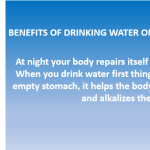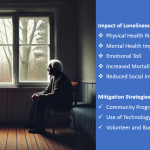As we age, maintaining physical and mental well-being becomes increasingly important. One simple yet powerful practice that can significantly enhance overall health in elders is deep breathing. This age-old technique, often overlooked in its simplicity, offers a range of benefits that can improve the quality of life for older adults.
What is Deep Breathing?
Deep breathing, also known as diaphragmatic breathing, involves taking slow, deep breaths that fully expand the lungs and engage the diaphragm. Unlike shallow breathing, which primarily uses the chest and is common in stressful situations, deep breathing allows more oxygen to enter the bloodstream and promotes relaxation. The technique is easy to practice and can be done anywhere, making it an ideal wellness tool for elders.
Health Benefits of Deep Breathing for Elders
Enhances Lung Function and Oxygenation As we age, lung capacity naturally decreases, and breathing may become less efficient. Deep breathing exercises can help to counteract these changes by improving lung function and increasing oxygen intake. This enhanced oxygenation supports better cellular function, boosts energy levels, and helps maintain overall vitality.
Reduces Stress and Anxiety Aging often brings new challenges, which can lead to increased stress and anxiety. Deep breathing activates the parasympathetic nervous system, known as the “rest and digest” system, which promotes relaxation and reduces stress. By calming the mind, deep breathing can help elders manage anxiety, improve sleep quality, and enhance emotional well-being.
Lowers Blood Pressure High blood pressure is a common concern among older adults, increasing the risk of heart disease and stroke. Regular practice of deep breathing has been shown to lower blood pressure by promoting relaxation and reducing the workload on the heart. This natural approach can be an effective complement to medication and other treatments.
Improves Cognitive Function Adequate oxygen supply to the brain is crucial for cognitive health. Deep breathing increases the oxygenation of brain cells, which can improve concentration, memory, and mental clarity. For elders, this can be particularly beneficial in maintaining cognitive function and potentially reducing the risk of age-related cognitive decline.
Alleviates Pain and Discomfort Chronic pain, often a result of arthritis or other age-related conditions, is a common issue for many elders. Deep breathing can help alleviate pain by promoting relaxation and releasing endorphins, the body’s natural painkillers. It also helps to reduce muscle tension, which can further ease discomfort.
Supports Better Posture Poor posture is a common problem among older adults, often due to muscle weakness, osteoporosis, or inactivity. Deep breathing encourages proper use of the diaphragm and engages core muscles, which can improve posture over time. Better posture not only enhances physical appearance but also reduces the risk of falls and other injuries.
Boosts Immune Function The immune system’s efficiency often declines with age, making elders more susceptible to infections and illnesses. Deep breathing exercises help to reduce stress, which is known to weaken the immune system, and improve circulation, which enhances the body’s ability to fight off infections.
How to Practice Deep Breathing
Practicing deep breathing is simple and can be easily incorporated into daily routines. Here’s a basic guide:
- Find a Comfortable Position: Sit or lie down in a comfortable position. Relax your shoulders and place one hand on your chest and the other on your abdomen.
- Inhale Slowly: Breathe in deeply through your nose, allowing your abdomen to rise as your lungs fill with air. Your chest should remain relatively still.
- Exhale Fully: Exhale slowly through your mouth, letting your abdomen fall as you release the air. Try to make the exhale longer than the inhale.
- Repeat: Continue this process for 5 to 10 minutes, focusing on slow, deep breaths. Try to practice deep breathing daily, or whenever you feel stressed or need to relax.
Tips for Elders
- Consistency is Key: Regular practice is important to experience the full benefits of deep breathing. Set aside a specific time each day for your breathing exercises.
- Combine with Other Relaxation Techniques: Deep breathing can be combined with other relaxation practices such as meditation, yoga, or progressive muscle relaxation for enhanced benefits.
- Consult a Healthcare Provider: If you have any underlying health conditions, especially respiratory issues, consult with your healthcare provider before starting deep breathing exercises.
Conclusion Deep breathing is a powerful, low-cost tool that can bring a wide range of health benefits to elders. From improving lung function and reducing stress to boosting cognitive function and supporting better posture, this simple practice can significantly enhance quality of life. By incorporating deep breathing into their daily routine, elders can take a proactive step toward better health and well-being.



